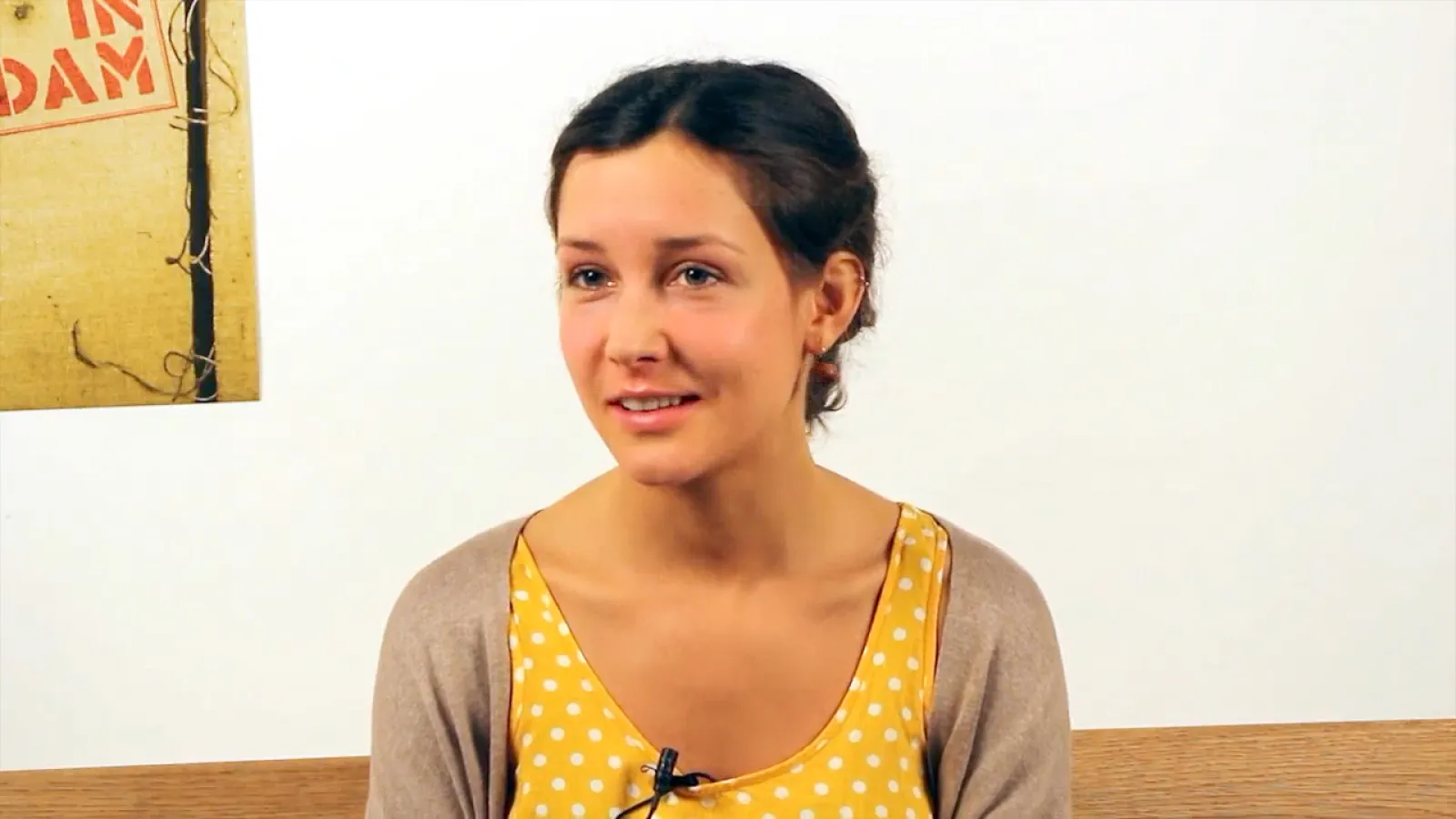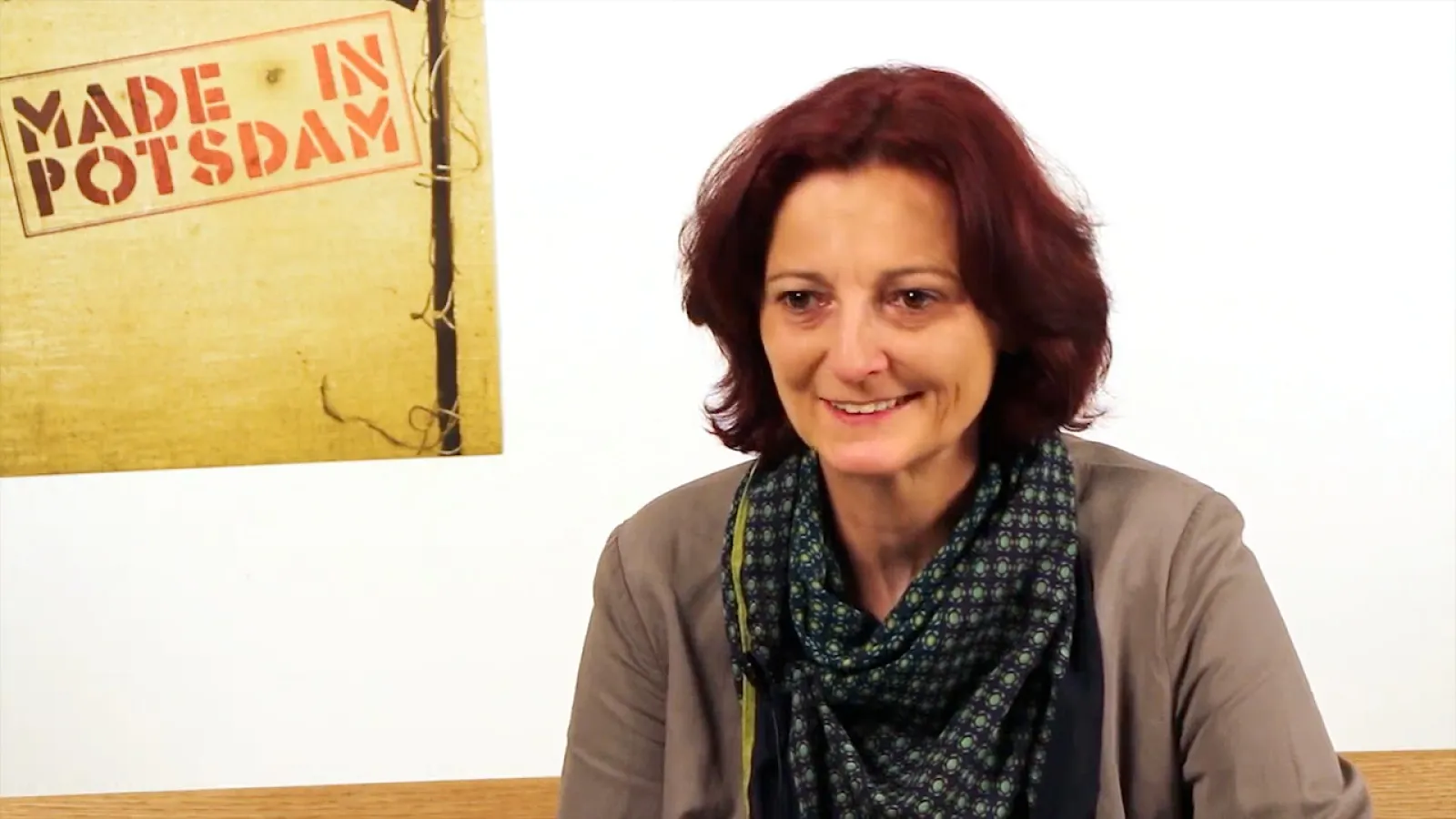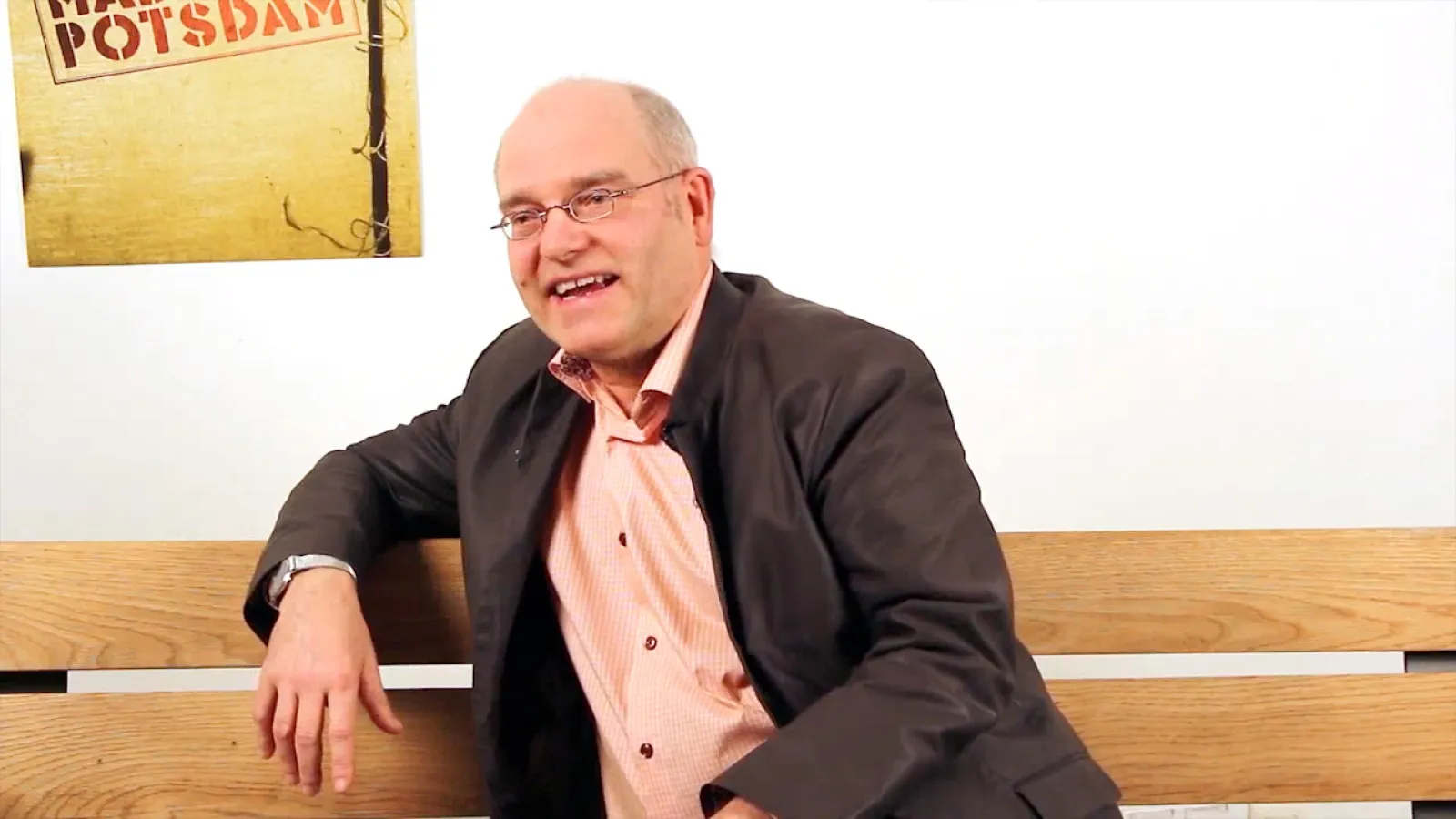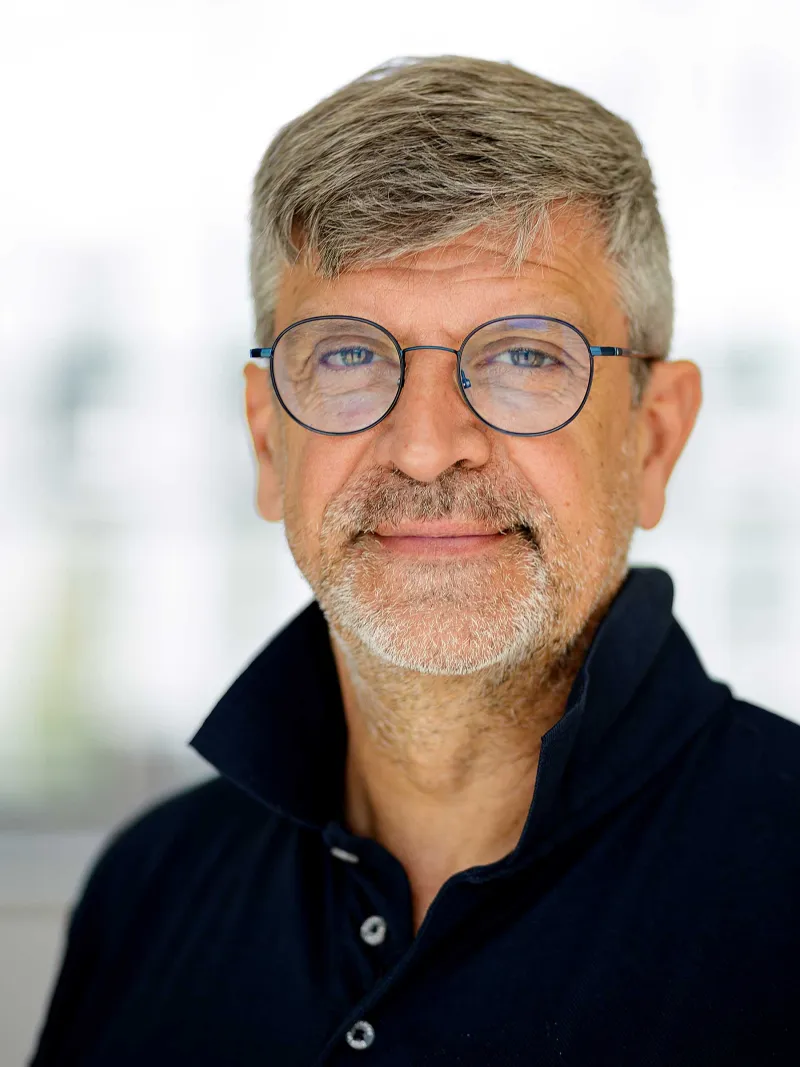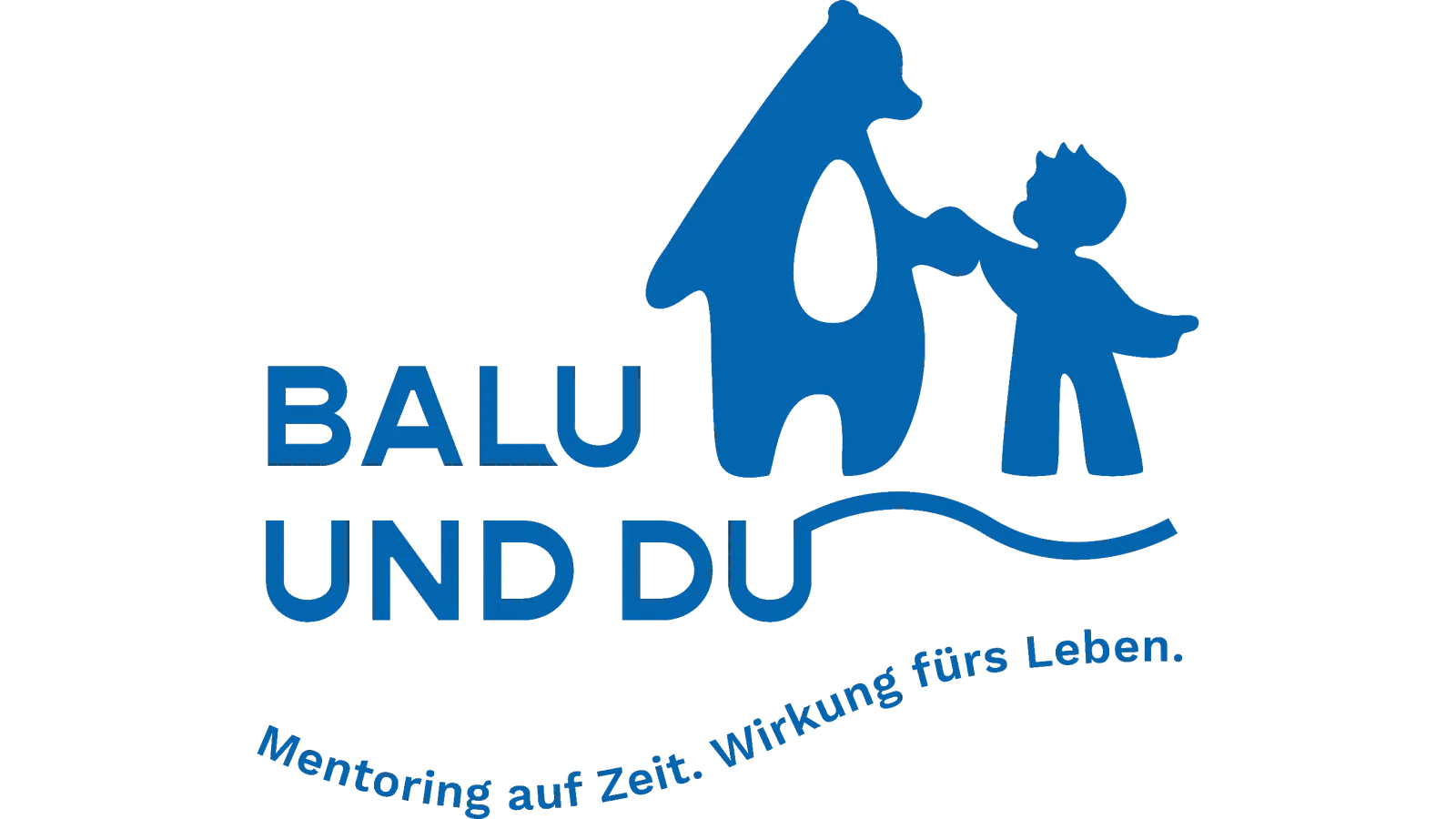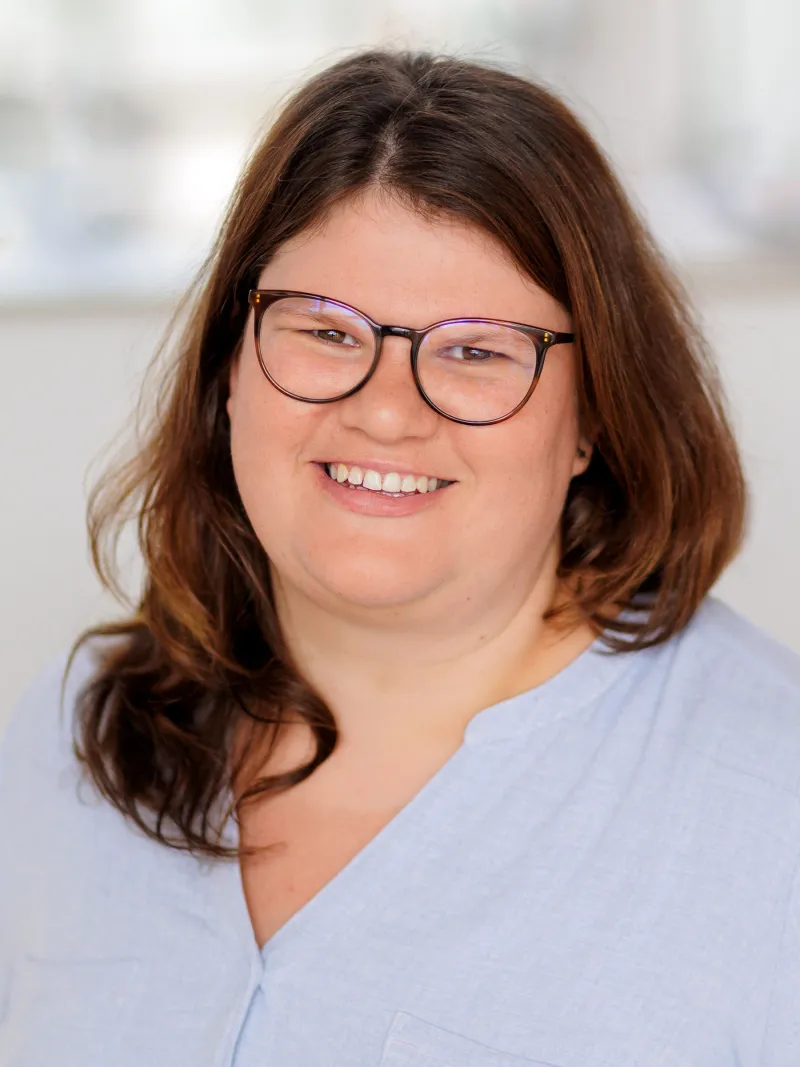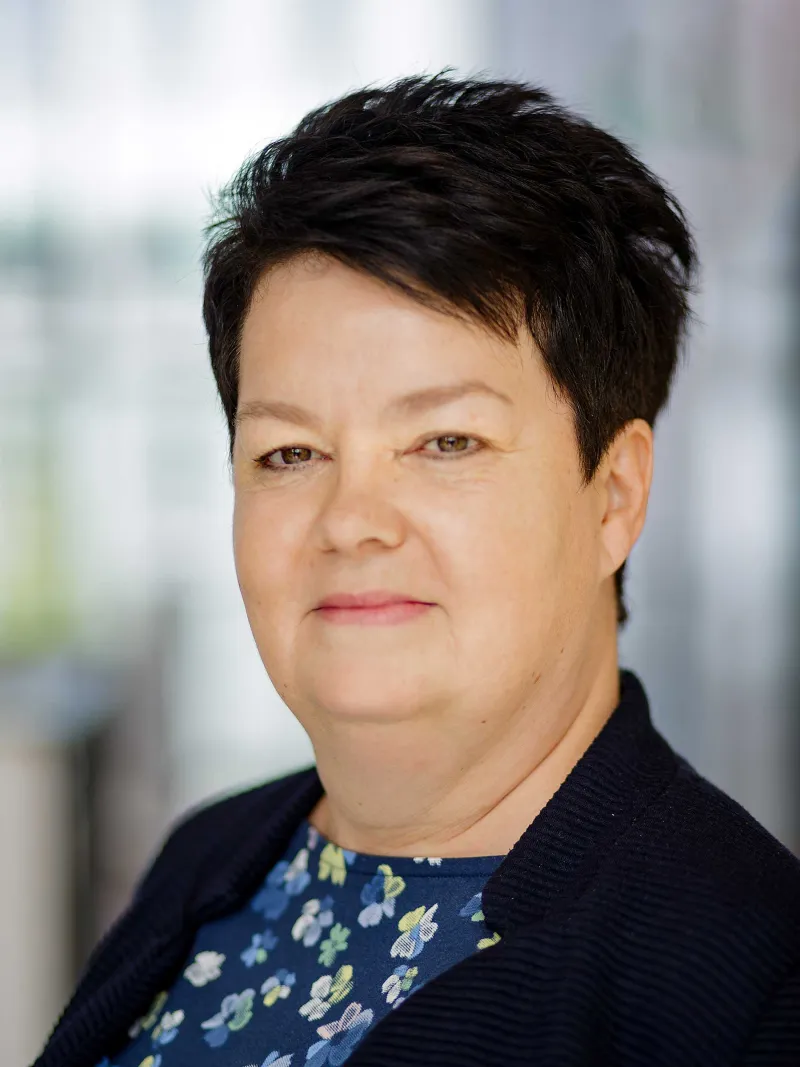The bachelor's degree programme in social work at the University of Applied Sciences Potsdam offers a very broad, academically sound and at the same time practice-oriented education, with which you can work in all areas of social work after graduation. During your studies, you can set and pursue your own focal points. In the integrated internship, the theoretical knowledge acquired is applied and reflected upon.
6 semesters, incl. at least 20 weeks of integrated internship
15/05 – 15/07 (restricted admission)
180 ECTS credits
Profile
Is this degree programme right for me?
Social workers bring a variety of perspectives and solutions to the problems faced by people, neighbourhoods and organisations when simplistic black-and-white judgements or highly specialised professions cannot (or can no longer) help and a complex nuance of human experience and knowledge is required. ‘Screaming colour’ expresses the transformative power of social work to change monochrome world views through its commitment to marginalised groups.
Our Bachelor's degree programme offers you a highly interesting range of subjects, a scientific foundation and practical experience. With our state accreditation, you can work professionally in 100 professional fields of social work. During your studies, you will set individual specialisations that match your interests and talents, that challenge you and take you further. In the practical phases, you will apply your knowledge methodically in direct work with people. You will broaden your horizons in international seminars or during your optional semester abroad. In our real-world laboratories, you will explore the depths and details of social phenomena using the methods of empirical science.
Social work, which is what we stand for at the University of Applied Sciences Potsdam, is intensive work with people, neighbourhoods and institutions: Entering into relationships, engaging with living environments, creating connections, campaigning for justice, working on the social future of our society. Communication and empathy are good prerequisites, as are the ability to deal with conflict and perseverance. At the University of Applied Sciences Potsdam, we consider and work on issues from political, psychological, medical, legal, economic, sociological, practical, organisational and ethical perspectives in equal measure. We stand for social work that provides concrete help, researches structures and shapes the future.
The Social Work degree programme (BA) at the University of Applied Sciences Potsdam is the right choice for you ...
if you...
stand...
- for social justice, participation and an open society
get along...
- with organisations, administration and law
want to...
- work with people and support them in challenging situations
- get to know diversity, new milieus and other cultures
- acquire autonomy and creative freedom in their daily work
- acquire a broad-based education and sound knowledge in various areas of social work
- set individual specialisations
- link theory and practice
- apply acquired knowledge directly in an integrated internship
We offer you...
- dedicated professors, modern technology, small groups, collaborative atmosphere
- an interesting course of study in various disciplines such as sociology, law, psychology, management, education, politics, philosophy, medicine and more
- internship options in 100 fields of work
- specialisation options: Youth welfare, conflict management, sport, aesthetics, international social work, research
- high-quality employment opportunities as student tutors, scouts, research project assistants
- flexible study options: Full-time, part-time, dual, digital, international
- state recognition as a social worker/social pedagogue
- connections to design, architecture, cultural work, futurology,...
- a Master's programme afterwards and later the opportunity to do a doctorate in one of our research projects
- a green campus, with a casino and commuity
Sie wollen ...
- mit Menschen in herausfordernden Situationen arbeiten.
- Vielfalt, neue Milieus und andere Kulturen kennenlernen.
- Autonomie und Gestaltungsfreiheit.
- eine breit gefächerte Ausbildung und fundiertes Wissen in verschiedensten Bereichen.
- individuelle Schwerpunkte setzen.
- Wissen im integrierten Praktikum direkt anwenden.
Dazu bieten wir Ihnen ...
- engagierte Professor*innen, Service im Studium, moderne Technik, kleine Gruppen, eine gemeinschaftliche Atmosphäre.
- ein interessantes Studium unterschiedlicher Wissenschaften wie Soziologie, Recht, Psychologie, Management, Pädagogik, Politik, Philosophie, Medizin und Spezialisierungsmöglichkeiten.
- Praktikumsoptionen in über 100 Arbeitsfeldern.
- hochwertige Beschäftigungsmöglichkeiten als studentische Tutor*innen, Scouts, und Assistent*innen in Forschungsprojekten.
- flexibles Studieren in Vollzeit, Teilzeit, dual, digital und international.
- die staatliche Anerkennung als Sozialarbeiter*in/ Sozialpädagog*in.
- Verknüpfungsmöglichkeiten zu Design, Architektur, Kulturarbeit und Zukunftswissenschaften.
- ein anschließendes Masterstudium und die Möglichkeit zur Promotion.
- einen grünen Campus mit selbstverwaltetem, studentischem Kulturzentrum Casino und Community.
Insta-Community
Folgen Sie uns auf Instagram und bekommen Sie einen Eindruck vom Studienalltag, von Projekten, Studierenden und Mitarbeitenden.
Online Study Choice Assistant (OSA)
In our online study programme selection assistant, you can test whether the degree programme is right for you.
There you will find many more videos with opinions and tips from students and lecturers and can take a look at typical study tasks.
Contact
The colleagues at the student counselling service provide information to prospective students, first-year students, parents, teachers and students on all general questions about the degree programme. If you have specific questions or concerns about the bachelor's degree programme in social work, please contact the subject counselling service.
Subject Counselling Service
Studiengangsmanagement & Internationales
These degree programmes might also interest you
More courses| Department | Degree programme | Teaching language | Start of study | Application deadline |
|---|---|---|---|---|
| |
Childhood Education (BA)* | German | Winter semester | 15/05 - 15/07 (admission restricted) | |
| |
Childhood Education Dual (BA)* | German | Winter semester | 15/06 – 15/08 (admission-free) | |
| |
Early Childhood Education (BA) | German | Winter semester | 15/05 – 15/07 (admission restricted) |
| |
Early Childhood Studies (MA) | German | Winter semester | 15/06 – 15/10 (free of admission) |
| |
MA Social Work with a Focus on the Family | German | Winter semester | 15.05. – 22.06. (NC degree program) |
| |
Social Work (BA) | German | Winter semester | 15/05 – 15/07 (restricted admission) |
| |
Social Work (part-time for professionals) (BA) | German | Summer semester | 15/12 – 15/01 (admission restricted) |
| |
Social Work Dual-Digital (BA) | German | Winter semester | 15/06 – 15/07 (free of admission) |
| |
Sustainable Social Work: Child/hood and Family (MA)* | German, English | Winter semester | 15/05 - 22/06 (admission restricted) Note: Studies begin in the winter semester 2026/27 |
Career Prospects
1 degree - over 100 professions
Advise, support, coordinate, manage, represent and so on
The intensive theory-practice transter at the University of Applied Sciences Potsdam provides a solid foundation for your future professional work, e.g. here:
1 Adventure playgrounds 2 Adoption placement 3 Employment agency 4 Drop-in centre for children with experience of abuse 5 Work and employment initiatives 6 Outreach social work 7 Counselling centre for family violence 8 Counselling centre for prostitutes 9 Counselling centre for senior citizens 10 Vocational counselling 11 Vocational training centres 12 Vocational promotion 13 Employment and unemployment projects 14 Assisted living for young people 15 Assisted living for people with disabilities 16 Company social work 17 Probationary services 18 Educational work 19 Drug consumption rooms 20 Drug treatment facilities 21 Marriage and family counselling centre 22 Parenting schools 23 Developmental support 24 Experiential education 25 Educational support 26 Educational counselling centres 27 Family education centres 28 Family education centres 29 Women's education centres 30 Women's shelters 31 Early detection 32 Early intervention 33 Community psychiatry 34 Gerontopsychiatric clinic 35 Gender-specific work 36 Health counselling 37 Violence prevention 38 Home education 39 After-school care 40 Hospice 41 Intercultural youth work 42 Youth welfare office 43 Youth vocational assistance 44 Youth clubs 45 Youth leisure activities 46 Youth court assistance 47 Youth centres 48 Youth welfare planning 49 Youth cultural work 50 Youth care 51 Youth protection 52 Youth social work 53 Youth detention centre 54 Youth association work 55 Youth hostels 56 Correctional services 57 Child protection centres 58 Child day-care centres 59 Day-care centre social work 60 Contact points for homeless people 61 Hospital social work 62 Hospital social services 63 Health insurance social services 64 Nursery 65 Girls' residential groups 66 Mediation and conflict counselling 67 Methadone programmes 68 Mobile youth work 69 Multifamily therapy 70 Multicultural work 71 Mother's respite home 72 Mother and child home 73 Mothers' centres 74 Emergency shelters for the homeless 75 Open support for the elderly 76 Open youth work 77 Foster families 78 Prevention work 79 Psychiatric outpatient clinics 80 Psychosomatic counselling 81 Psychosocial services 82 Neighbourhood management 83 Queer counselling 84 Rehabilitation facilities 85 Pension insurance social services 86 Debt counselling centre 87 School social work 88 Pregnancy conflict counselling 89 Self-help support and projects 90 Senior citizens' residences 91 Senior citizens' day centres 92 Senior citizens' residential homes 93 Sex education 94 Social welfare office 95 Social group work 96 Social education family support 97 Social planning 98 Social psychiatric counselling centres 99 Playmobile 100 District work 101 End-of-life care 102 Correctional services 103 Street work 104 Addiction counselling centre 105 Addiction prevention 106 Addiction therapy 107 Day facilities for people with disabilities 108 Day group 109 Day clinic 110 Day care 111 Telephone emergency call 112 Caregiver support 113 Separation and divorce counselling 114 Workshop for people with disabilities 115 Housing for people on the run or during migration 116 Shared accommodation 117 Residential home for people with disabilities 118 Homes for homeless people
... and what's next?
Master's degree programmes
Und nach Ihrem Bachelorstudium ...
… erhalten Sie als unsere Absolvent*innen die Staatliche Anerkennung als Sozialarbeiter*in, die man für mache Arbeitsfelder braucht.
Hier geht's zum Antrag.
Oder bleiben Sie doch gerne bei uns!
Und studieren einen unserer Masterstudiengänge:
- Nachhaltige Soziale Arbeit: Kind/heit und Familie (M. A.) Studientrack Deutsch oder English
- Frühkindliche Bildungsforschung (M. A.)
These degree programmes might also interest you
More courses| Department | Degree programme | Teaching language | Start of study | Application deadline |
|---|---|---|---|---|
| |
Childhood Education (BA)* | German | Winter semester | 15/05 - 15/07 (admission restricted) | |
| |
Childhood Education Dual (BA)* | German | Winter semester | 15/06 – 15/08 (admission-free) | |
| |
Early Childhood Education (BA) | German | Winter semester | 15/05 – 15/07 (admission restricted) |
| |
Early Childhood Studies (MA) | German | Winter semester | 15/06 – 15/10 (free of admission) |
| |
MA Social Work with a Focus on the Family | German | Winter semester | 15.05. – 22.06. (NC degree program) |
| |
Social Work (BA) | German | Winter semester | 15/05 – 15/07 (restricted admission) |
| |
Social Work (part-time for professionals) (BA) | German | Summer semester | 15/12 – 15/01 (admission restricted) |
| |
Social Work Dual-Digital (BA) | German | Winter semester | 15/06 – 15/07 (free of admission) |
| |
Sustainable Social Work: Child/hood and Family (MA)* | German, English | Winter semester | 15/05 - 22/06 (admission restricted) Note: Studies begin in the winter semester 2026/27 |
Study Content
Studienablauf und Studieninhalte
Im Bachelorstudium der Sozialen Arbeit liegt der Schwerpunkt auf dem reflektierten Anwendungsbezug, der durch Digitale Vorlesungen, Seminare und Forschungslabs vermittelt wird.
Sie erhalten einen umfassenden Einblick in das weite Feld der Gesellschaft und der Sozialen Arbeit.
Studienformate
Study schedule and course contents
In the Bachelor's degree programme in Social Work, the focus is on reflective application, which is taught through lectures, seminars and research-based project groups. These teaching methods give you a comprehensive insight into the broad field of society and social work.
The lectures and seminars, which often take place in small groups, are always accompanied by tutorials and enable intensive discourse with students and lecturers, which will sharpen your argumentation skills.
A special focus is placed on the approaches of research-based learning. In practical research projects, you will not only investigate the practice of social work, but also develop new models for its future. These projects establish a direct link to practical application and ensure a transfer between theory and practice as well as between research and professional action.
As part of the mentoring programme, you will have the opportunity to discuss your career path or course of study, which we can make more flexible for you. In the final semester of your degree programme, you will write your Bachelor's thesis, a piece of your own research, in which we will support you with seminars on academic work.
At a glance
Teaching formats
- Seminars, lectures, tutorials and self-organised, small study groups
- Support from teachers (mentoring and counselling)
- Research-based learning in projects (workshops and real labs) and public presentation of results
- E-learning components
- Study visits and work placements abroad through international cooperations
- Interdisciplinary projects within the university (e.g. InterFlex)
Thesis
During the last semester you will write your bachelor's thesis and will be accompanied in the process by a seminar on scientific work/research colloquium.
Internship
In the fourth semester, you will complete an 800-hour (approx. 20 weeks) integrated internship. This practical phase is supervised on one university day per month by training supervision, methodological seminars relevant to the internship and a project support seminar. The university day is compulsory.
International
The fifth semester of study lends itself to a stay abroad. It is also possible to complete the integrated compulsory internship as an internship abroad. You can find more details in the module handbook. We also offer many English-language seminars, e.g. through the international consortium VirCamp.
Interdisciplinarity and digitalisation
We have a Flex module to give you an insight into the knowledge areas of other disciplines. Here you can choose from the entire portfolio of all FHP degree programmes. You can usually choose between face-to-face teaching and digital formats and examinations. In the module handbook you will find a detailed description of the programme content, a study plan and our selection procedure.
Online Study Choise Assistant
In the Online Study Choice Assistant (OSA) of the University of Applied Sciences Potsdam for the degree programme Social Work (BA) you will find an explanatory version of the video, a detailed description of the course of studies and examples of a possible timetable in the first semester and a study project, as well as much more content to help you decide on this degree programme.
Module handbooks & regulations
In the currently valid module handbooks, study and examination regulations and statutes of the Department of Social and Educational Sciences you will find the module overview, a detailed description of the modules and course content, the study plan and the statutes for the selection procedure for the Social Work degree programme.
Projects from the department
More projects
Certificate Programme "Fan- und Zuschauermanagement" (FZM)
The aim of the certificate programme is to provide scientific, conceptual, strategic and action-oriented skills for managerial, planning, coordinating and evaluating activities in the field of fan and spectator management.
Transfer research project: Social work in daycare centres and family centres in Brandenburg
Social work in daycare centres, also known as daycare centre social work, has been a growing field of activity in Germany for the last ten years. The aim is to mitigate the consequences of social inequality for children's education. This issue is currently under discussion as part of the planned Startchancen programme for daycare centres, which the federal government intends to implement from 2026…

FEEL - Feeling, Recognising, Assessing, Learning
Extended reality and AI-supported counselling for parents in understanding and dealing constructively with their children's emotions
Application & Contact
Dates & requirements for your application
The most important deadlines, dates and admission requirements for the Bachelor's degree programme in Social Work are compiled here. You can find out which steps you need to take for a successful application in the next section.
Dates
- by 15th of July: register and submit an online application
- by 15th of July: apply for a higher semester to continue a degree programme you have started at the University of Applied Sciences Potsdam
- 6th of June 2026: Open Day at the University of Applied Sciences Potsdam
Access requirements
- General university entrance qualification according to the Brandenburg university act: General university entrance qualification or entrance qualification for studies at universities of applied sciences or previous vocational training recognised as equivalent
This is how you apply!
In the following, we explain to you which aspects you should pay attention to from the registration for the central allocation of study places to the matriculation (enrolment).
Further information
The following links provide you, and especially international applicants, with further information on the topics of application and enrolment at the University of Applied Sciences Potsdam.
International applicants
You would like to apply for studies from the first or a higher semester and have acquired your school-leaving qualification and/or university degree abroad? Then you can have degrees and achievements acquired abroad recognised and study with us.
Application & Enrolment Procedure
The application and study service provides information and advice on general questions regarding the application process, admission and enrolment at the University of Applied Sciences Potsdam, application for a higher semester, but also on topics such as compensation for disadvantages, part-time studies, waiting semesters and hardship applications.
Contact & Services
The student counselling service provides information and advice on general questions about studying as well as on topics such as choosing a degree programme, application, enrolment and study organisation.
For subject-specific questions on module content, credit transfer, examinations or specialisations in the social work degree programme, the subject counselling service is the right place to go.
Subject Counselling Service
Study and Examination Services
Study Info Service
studien-info-service@fh-potsdam.de
bewerbungs-service@fh-potsdam.de
campuskarte@fh-potsdam.de
Study Service
studien-service@fh-potsdam.de
Exam Service
pruefungs-service@fh-potsdam.de
Family Affairs Officer
Office hours
Tue and Thu 9.30 am – 1.30 pm
Accessibility and Inclusion Officer
Office hours
Monday and by appointment

